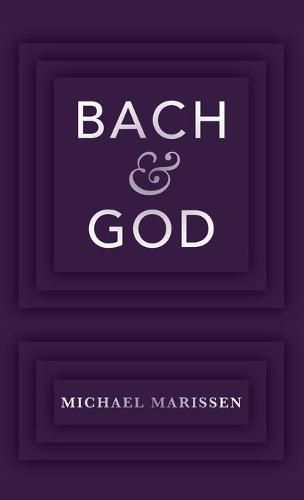Readings Newsletter
Become a Readings Member to make your shopping experience even easier.
Sign in or sign up for free!
You’re not far away from qualifying for FREE standard shipping within Australia
You’ve qualified for FREE standard shipping within Australia
The cart is loading…






Bach & God explores the religious character of Bach’s vocal and instrumental music in seven interrelated essays. Noted musicologist Michael Marissen offers wide-ranging interpretive insights from careful biblical and theological scrutiny of the librettos. Yet he also shows how Bach’s pitches, rhythms, and tone colors can make contributions to a work’s plausible meanings that go beyond setting texts in an aesthetically satisfying manner. In some of Bach’s vocal repertory, the music puts a spin on the words in a way that turns out to be explainable as orthodox Lutheran in its orientation. In a few of Bach’s vocal works, his otherwise puzzlingly fierce musical settings serve to underscore now unrecognized or unacknowledged verbal polemics, most unsettlingly so in the case of his church cantatas that express contempt for Jews and Judaism. Finally, even Bach’s secular instrumental music, particularly the late collections of abstract learned counterpoint, can powerfully project certain elements of traditional Lutheran theology. Bach’s music is inexhaustible, and Bach & God suggests that through close contextual study there is always more to discover and learn.
$9.00 standard shipping within Australia
FREE standard shipping within Australia for orders over $100.00
Express & International shipping calculated at checkout
Bach & God explores the religious character of Bach’s vocal and instrumental music in seven interrelated essays. Noted musicologist Michael Marissen offers wide-ranging interpretive insights from careful biblical and theological scrutiny of the librettos. Yet he also shows how Bach’s pitches, rhythms, and tone colors can make contributions to a work’s plausible meanings that go beyond setting texts in an aesthetically satisfying manner. In some of Bach’s vocal repertory, the music puts a spin on the words in a way that turns out to be explainable as orthodox Lutheran in its orientation. In a few of Bach’s vocal works, his otherwise puzzlingly fierce musical settings serve to underscore now unrecognized or unacknowledged verbal polemics, most unsettlingly so in the case of his church cantatas that express contempt for Jews and Judaism. Finally, even Bach’s secular instrumental music, particularly the late collections of abstract learned counterpoint, can powerfully project certain elements of traditional Lutheran theology. Bach’s music is inexhaustible, and Bach & God suggests that through close contextual study there is always more to discover and learn.